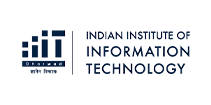M.Sc. Courses & Careers: Subjects, Colleges & Specialisations
Are you considering getting your next level of education? An M.Sc. (Master of Science) may be a good option for you! Whether you are interested in science, technology, environment, or data, this postgraduate level of education can help you hone your skill set and provide you with research, teaching, and industry job opportunities.Due to the increase in online and distance learning, M.Sc. programs are now more flexible and accessible than ever, making it an excellent program for working professionals or those studying while maintaining other commitments. There are many exciting options you can choose from, regardless of your interest and career aspirations, including data science and biotechnology, among others.
In this blog, we will let you discover everything about this program, including M.Sc. courses, specialisations, eligibility, the best colleges to enrol in for the online M.Sc. programs, and a career thereafter! So, if you are wondering how an M.Sc. can boost your academic resume and job marketability, this guide is the right choice for you.
Why Choose M.Sc.?
If you've just finished your undergraduate studies and are wondering about your next steps, enrolling into an M.Sc. program might be just what you need, especially if you are pursuing a career in a field that highly values depth of knowledge, specialisation, and research. Obtaining an M.Sc. qualification is not simply an additional academic credential to add to your resume; it enables a range of advanced roles in both academic and industry opportunities.The primary reason for the pursuit of an M.Sc. is the opportunity for in-depth learning and understanding of a subject. Whether you are looking to study data science, environmental studies, or physics, being in an M.Sc. program prepares you to build mastery in the subject and develop critical thinking skills. If you wish to transition into either a research or teaching position or R&D, an M.Sc. offers deep knowledge and provides a pathway for further study or Ph.D. experiences.
At the same time, with the opportunity to attend the program through online or distance learning opportunities, the online M.Sc. program allows you to pursue an opportunity in education and studies without putting your career or life on hold.
Different Formats of M.Sc. Program
The M.Sc. degree is not just one program - it is structured in many different ways, which are all practical for different career paths and various styles of learning. It's likely that no matter your love for hands-on work in a lab or your desire to learn in a more flexible online class format, there is some variation of the M.Sc. for you. Below are the variants of M.Sc. programs available:o

- General M.Sc. – Provides a broad-based educational experience in a specific area of science and is for anyone who wants a solid academic foundation or credentials.
- M.Sc. by Research – It is a suitable program for students who are interested in a practical or theoretical-based research degree, as students in this format are generally required to be working with a thesis or dissertation when completing this degree.
- M.Sc. with Specialisation – It has an emphasis placed on a specialisation in a higher demand field, like Data Science, AI, Biotechnology, and many others, thus making this degree a great way to increase your employability.
- Online/ Distance M.Sc – This is for the working professional, the person learning remotely, or the person who needs the flexibility of a part-time learning schedule while not losing quality in the educational experience.
Top M.Sc. Subject Choices and Specialization Paths
There is no shortage of exciting topics to specialize in with a M.Sc. program. M.Sc. specializations allow you to focus on a specific subject, whether you want to study the microscopic realm of biology or cutting-edge technologies like data science. Here are some examples of popular subject streams you could consider with a M.Sc.:- M.Sc. in Data Science - This is best suited for those looking at analytics, machine learning, and big data.
- M.Sc. in Mathematics - This is best suited for those who are analytical thinkers and are looking for a career in academia, teaching, or finance.
- M.Sc. in Biotechnology - This brings biology and technology together and is for careers in research laboratories, pharma, and healthcare.
- M.Sc. in Environmental Science - If you care about sustainability, climate change, and ecology, this could be an ideal specialisation for you.
- M.Sc. in Physics - Most appropriate for those who are entering scientific research, space, and advanced technology.
- M.Sc. in Chemistry - A versatile option with career options in laboratories, research and development, chemistry and chemical-related industries.
- M.Sc. in Computer Science - The subject area will focus on software, systems, and emerging technologies.
Course Length, Eligibility Criteria, & Admission Insights
Before committing to an M.Sc. program, you need to find out how long it takes to complete the program and what the admission process involves. Fortunately, both factors are quite simple and flexible.Duration
Most M.Sc. programs, whether online, distance, or traditional, last 2 years and consist of 4 semesters. However, research-based or part-time programs may vary slightly in length, depending on the university and the student’s capability to complete the assigned thesis.Eligibility Criteria for Admission
Generally, you will need to possess a bachelor’s degree in a related field, which is usually a B.Sc. However, in some cases, you may qualify with a related degree if your area of focus and the institution permit. For example, a BCA graduate may qualify for admission into an M.Sc. in Computer Science at some universities.Admissions Process
Some university programs admit students directly based on merit, while some may involve discussions about the admission examinations or interview process. Online and distance education programs typically offer a more relaxed admissions process, and less hassle as compared to that of the admission process for traditional M.Sc. programs.Popular Colleges Offering M.Sc. in India

Amity University Online
Amity University Online is one of India's top online education providers. Amity University offers UGC-accredited M.Sc. programs geared toward career-oriented education. Amity University has a state-of-the-art learning management system (LMS) that includes live class time, recorded lectures, and 24/7 academic student support. Students have the option to specialize in subjects like M.Sc. in Information Technology and Data Science, with a relevant curriculum geared towards industry needs. The recognition Amity has in a global arena, along with its corporate partnerships, is an added benefit.IGNOU (Indira Gandhi National Open University)
IGNOU is one of the largest open universities in the world and has been a leader for many years in India for distance education. IGNOU offers low-cost M.Sc. programs in subjects like Mathematics with Applications in Computer Science, Environmental Science, and Food and Nutrition. IGNOU is best known for its reach throughout India, being recognized as a self-paced distance education provider with regional academic study centres. Overall, IGNOU is one of the most popular academic options for students who are looking to complete a low-cost, flexible post-graduate science degree at an established institution.Annamalai University – Directorate of Distance Education (DDE)
Annamalai University is one of the oldest and most established distance education wings in India. It is approved by UGC and DEB and offers a variety of M.Sc. specializations in fields including Botany, Zoology, Chemistry, and Physics. Its curriculum is formulated in a comprehensive and exam-oriented style, providing printed materials and resources for online learning.University of Mumbai – Institute of Distance and Open Learning (IDOL)
Mumbai University IDOL offers M.Sc. programs with the prestige of being one of India's best public universities. Students can select their coursework among M.Sc. specializations, including Mathematics and Computer Science, in flexible formats. Because this university creates high-quality study materials within the structure of a semester system, it offers rigorous academic content with regional recognition in the job market, given UGC approval.Symbiosis Centre for Distance Learning (SCDL)
SCDL is known for its high-quality curriculum and self-paced online learning infrastructure. Rather than being primarily geared toward management or other professional courses, Symbiosis also offers M.Sc. scholarship equivalent programs as well as specialized postgraduate diplomas that serve the science and technology sectors.Vellore Institute of Technology (VIT)
VIT is a recognized educational institution known for its excellence in education, particularly in technology and applied sciences. VIT has established online learning platforms offering industry-aligned M.Sc. programs in Data Science, Information Technology, and Physics. The programs are designed with an experiential learning approach and often include case studies, real-life examples, and project assessments. With excellent placement assistance and industry partnerships, VIT is a solid choice for those seeking a career in technology-related areas.NMIMS (Narsee Monjee Institute of Management Studies)
NMIMS is one of India’s top-rated private universities, and it provides a Global Access wing that offers career-focused M.Sc. programs in newer fields such as Data Science and AI. Classroom sessions for the programs are interactive and supplemented with a good digital platform, live faculty classes, and case-based learning. NMIMS is a good fit for working professionals looking for M.Sc. level education with an industry focus.Andhra University – School of Distance Education (SDE)
Andhra University’s SDE is known for affordable and accessible M.Sc. programs in traditional science fields such as Physics, Botany, Zoology, and Chemistry. The programs support open learning and create a space for learning (or support) a wide demographic of learners through printed study materials, regular contact classes, and flexible exam options.Career Avenues You Can Pursue After an M.Sc.
An M.Sc. degree provides the entry point to a multitude of professional pathways across industries and sectors. Whether you aspire to enter academic research or want to move directly into the corporate sector, your specialization and skills will shape your career path within your future career. Following are some of the best possible paths after the completion of your M.Sc. degree:
1. Job Roles After M.Sc.
The possibilities for graduates will differ somewhat depending on your field. Some of the examples of roles include:
- Data Scientist
- Research Analyst
- Lab Technician
- Clinical Research Associate
- Environmental Consultant
2. Higher Education & Certifications
M.Sc. serves as a launching pad for faculty and other advanced studies, as students frequently pursue Ph.Ds for a career in academia or industry-level certifications in areas like Data Analytics, Machine Learning, Clinical Research, and so on. Having a Ph.D. or other advanced certifications can add legitimacy in terms of trust and specialization on resumes both in academia and industry.
3. Teaching & Academic Careers
An M.Sc. can be a qualification for becoming a lecturer or assistant professor in many colleges, especially if you qualify for and pass exams for academic levels such as NET/SET. A lot of this happens in academia, often to influence future generations, and on a non-perpetual basis, contributing to research and publications. Institutions from schools to colleges, coaching institutions, and ed-tech companies are constantly on the lookout for substantive subject matter experts.
4. Entrepreneurship & Consulting
Do you have an innovative idea or scientific expertise? M.Sc. is certainly known to enter entrepreneurship, such as setting up a consultancy or starting a biotech company or a tech-based startup. Environmental consulting, health tech, education tech (ed tech), and scientific publishing are also fields of freelance and entrepreneurial opportunities.
Why Your Specialization Matters in an M.Sc. Program?
Your choice of specialization in your M.Sc. is not just following your interests, but more importantly, choosing to align your education as a stepping stone or as a strategic educational tie to your long-term goals. The specialization you have chosen is also going to be a large and likely the most relevant qualifier to many positions. It will influence the types of job roles, industries and even academic paths available to you later.- Aligning Specialization with Career Goals
- Considering Industry Trends
Smart Tips to Thrive in Your M.Sc. Journey
If you have enrolled in an M.Sc. Program, then you have made a great choice for your career. But what will you do with your two transformational years? Whether you are working full-time alongside your studies or exclusively diving into a full-time program, we’ve compiled a few friendly and practical tips to consider throughout your M.Sc.:
Stay Curious, Not Just Compliant
Learning should not be only to write an exam. Question and clarify, think about real-world scenarios, and stay powerfully curious about what all the new theories and frameworks mean in real time. It doesn't matter if you are studying Genetics, Statistical Data Mining or Organic Chemistry; just make it relevant and start thinking about what is going on in the world right now.
Master Time Management
There is going to be a lot of coursework, studies, research, and due dates, particularly when involved in an M.Sc. programme. It may be best to develop a weekly schedule and workload calendar. In the end, you determine how quickly to complete work but do schedule some block time for things unforeseen.
Build a Strong Academic Network
Ask questions, and reach out to your professors, mates, or even professional acquaintances at the workplace. That anecdote from a professor not only contributes to your study and experience but also provides great career advice which is relatable to your studies and industry.
Focus on Research & Projects
M.Sc. studies usually do not only take on a traditional course type format and usually contain a formal research component or thesis. Research units allow you those opportunities to delve into something you have passion or interest in and can enrich your career in ways you may not even have contemplated.
Use Online Resources Wisely
Check out resources such as MOOCs and YouTube lectures or log onto journal databases like JSTOR or Google Scholar. Supplementing your university material with external sources can give you a broader, updated perspective.
Conclusion
An M.Sc. is not just a degree but an entry to further knowledge, specialized skills, and career opportunities. Whether working towards specializations in data science, environmental studies, biotechnology or any of the other areas of study, your experience will have both academic perspective and applied advantage.Online and distance learning through online mediums has never been easier or more accessible to take an M.Sc., especially if you’re a working professional or handling multiple responsibilities. The trick is simply to commit to a specialization, be consistent in your commitment, and leverage the resources available to you.
If you have an interest in science, technology or research-based careers, this could be one of the best decisions you will ever make.
Frequently Asked Questions (FAQs)
1. How long does an M.Sc. program take?M.Sc. programs in India are typically 2 years long. Most programs have 4 semesters. However, part-time or online M.Sc. program length may be more flexible, as work pace and study duration vary.
2. Can I do an M.Sc. online or part-time?
Yes, many recognized institutions are now offering online and/or distance M.Sc. programs that are recognized by the UGC-DEB, allowing people to do the M.Sc. program if they are an active employee or someone unable to attend face-to-face classes.
3. How does an M.Sc. degree benefit my career?
An M.Sc. program is set up to allow you to specialize in your career field and prepare you for more advanced career roles and research-based careers in academics to obtain a Ph.D.
4. What are the most requested M.Sc. programs now?
Currently, data science, biotechnology, environmental science, artificial intelligence, and clinical research are consistently requested by the industry.
5. Do I need a science background to apply for an M.Sc.?
Generally, yes. Most universities, especially in India, would not admit students to their M.Sc. programs without a B.Sc. or similar undergraduate degree related to that field of study.
Trending Posts
-
15 Top Online MBA Colleges in India in 2025
-
A Complete Guide to Sikkim Manipal University Online Programs
-
DY Patil Pune Online: Courses, Admission and Fees 2025
-
Top 5 Online MCA Colleges in India in 2025
-
A Definite Guide to Chandigarh University Online (CU Online) 2025
-
How Much Do BCA Graduates Earn? Salary & Career Path Explained
-
Affordable Excellence: Top Online MBA Universities Around 1 Lakh
-
Top 7 Online PG Courses in India
-
Top Online MBA Universities in India 2025
-
IIIT Dharwad’s Online M.Tech in Data Science & Artificial Intelligence: A Complete Guide
-
IMT CDL Ghaziabad: All You Need to Know About the Institute in 2025
-
Top 5 Online Universities in India for Online MBA in Healthcare Management
-
Bharati Vidyapeeth CDOE Admission 2025: Step-by-Step Guide for Students
-
Top 10 In-Demand Courses after BBA for a Successful Career in 2025
-
Life After PhD: Salary Expectations, Career Moves & Next Steps































































